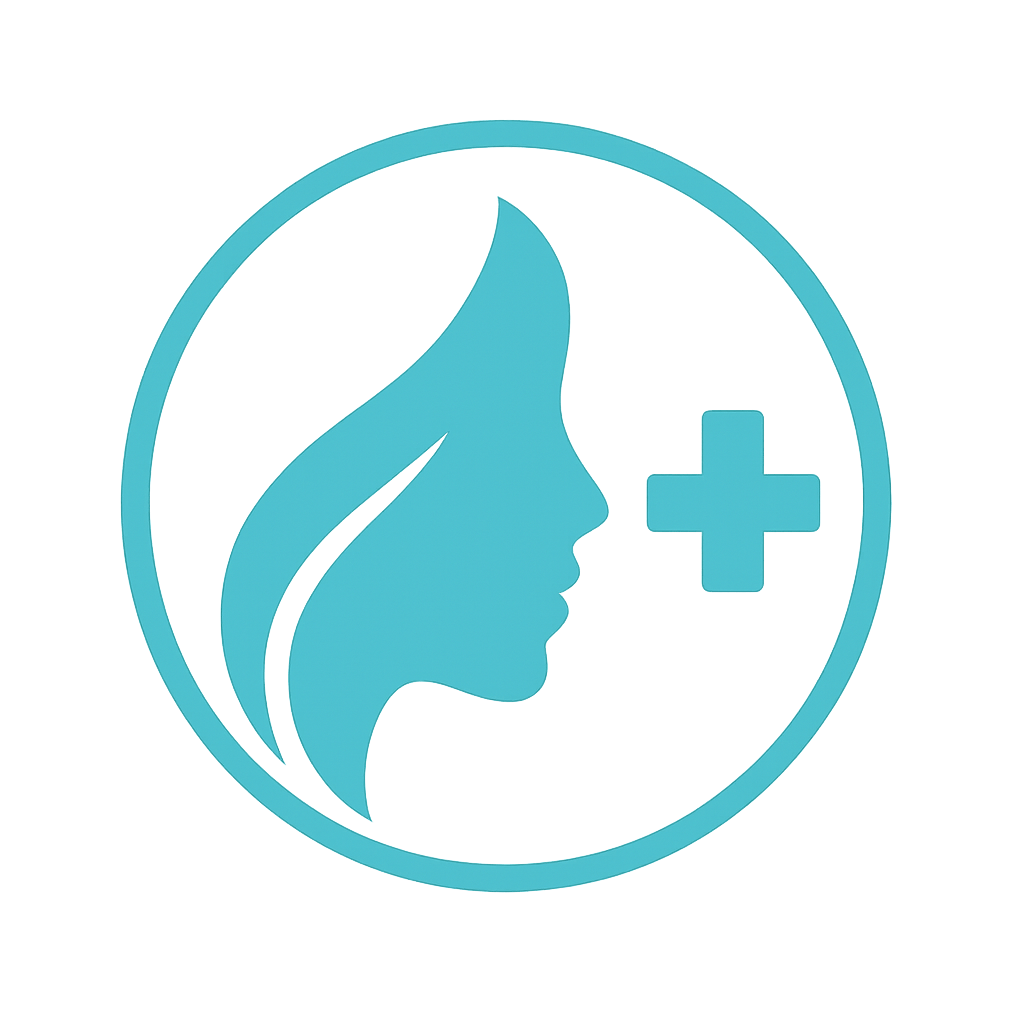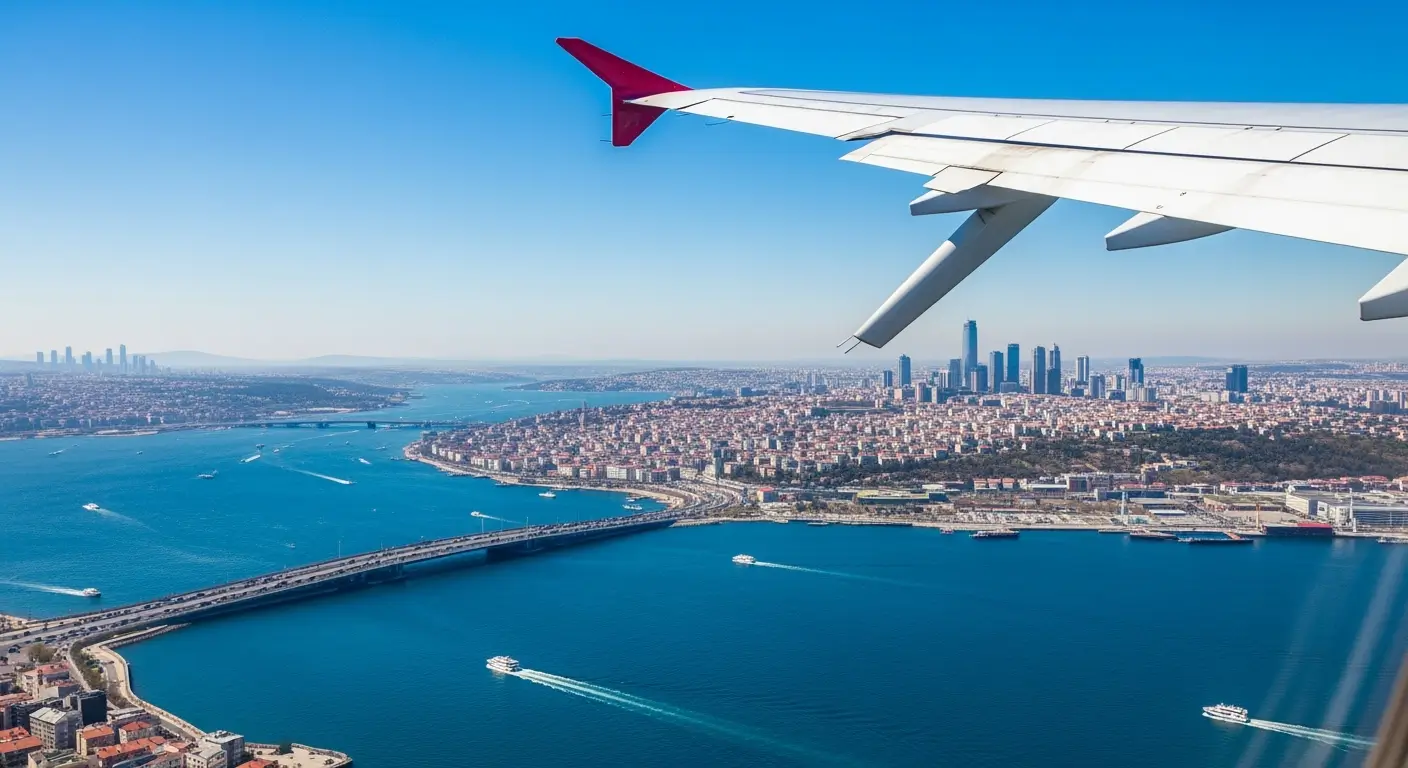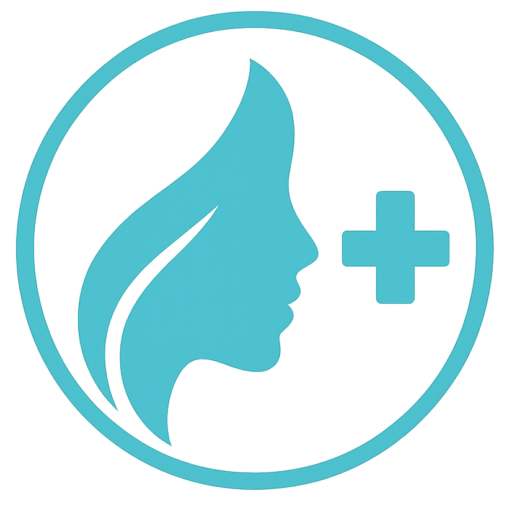The Complete Beginner’s Guide to Medical Tourism in Turkey.
Picture this: Last year, over 750,000 people packed their bags, boarded planes, and flew to Turkey not for the Instagram-worthy views of the Bosphorus (though those are lovely), but for something far more personal—a chance to transform themselves at a fraction of the cost they’d pay at home.
What exactly is medical tourism? Simply put, it’s traveling to another country for medical treatment that’s either unavailable, unaffordable, or inconveniently scheduled in your home country. Think of it as combining a holiday with healthcare, except the souvenir you bring back is a better version of yourself.
Why Turkey has become the world’s cosmetic surgery capital:
- Procedures cost 50-70% less than Western countries
- Over 40 internationally accredited hospitals
- Board-certified surgeons trained globally
- No waiting lists (imagine that!)
- Rich cultural recovery environment
What this guide covers: Everything from “Is this even safe?” to “What do I pack?” We’ll walk you through every step of the process, share real patient experiences, and give you the tools to make an informed decision.
What it doesn’t cover: Specific medical advice (that’s for qualified professionals), miracle cure promises, or sugar-coating the realities of surgery.
Why Turkey, Why Now?
The Numbers Game: Real Cost Savings
Let’s talk brass tacks, shall we? Here’s what procedures actually cost:
Rhinoplasty (Nose Job):
- USA: $15,000-$20,000
- UK: £8,000-£12,000
- Turkey: $2,500-$4,500
- Your savings: $10,000+
Hair Transplant:
- USA: $15,000-$30,000
- UK: £8,000-£15,000
- Turkey: $2,000-$4,000
- Your savings: $11,000+
Breast Augmentation:
- USA: $8,000-$12,000
- UK: £6,000-£9,000
- Turkey: $3,500-$5,500
- Your savings: $4,500+
Even after factoring in flights ($500-$1,500), accommodation ($100-$300/night), and living expenses, you’re still looking at savings that could fund your next three holidays.
Quality Assurance: JCI Accreditation Decoded
“JCI” sounds like financial jargon, but it’s actually your safety net. The Joint Commission International accredits hospitals that meet the same standards as top American medical facilities. Turkey has more JCI-accredited hospitals than most European countries combined.
What JCI accreditation means:
- International safety protocols
- English-speaking staff
- Advanced medical technology
- Rigorous hygiene standards
- Patient rights protection
Geographic Goldmine: Europe Meets Asia
Istanbul isn’t just geographically convenient—it’s strategically brilliant. Three-hour flights from most European capitals, direct connections from major cities worldwide, and a healthcare system that’s had to compete internationally for decades.
Time zone advantages:
- Minimal jet lag from Europe
- Reasonable flight times from North America
- Easy communication with family back home
Cultural Recovery Bonus
Here’s something your surgeon in Beverly Hills can’t offer: recovering while surrounded by 1,500 years of history. The Blue Mosque doesn’t charge admission, Turkish tea aids healing (probably), and nowhere else can you say your nose job came with a side of Byzantine architecture.
Quick Comparison: Turkey vs. The Competition
| Destination | Cost Savings | Quality | English | Culture | Recovery Environment |
|---|---|---|---|---|---|
| Turkey | 50-70% | JCI Standard | Excellent | Rich | Outstanding |
| Thailand | 60-80% | Variable | Good | Different | Good |
| Mexico | 40-60% | Variable | Limited | Familiar | Basic |
| India | 70-85% | Variable | Excellent | Very Different | Basic |
Popular Procedures & What to Expect
5 Most Requested Procedures
1. Rhinoplasty (Nose Reshaping)
What it involves: Reshaping the nose structure for aesthetic or functional improvement Recovery time: 1-2 weeks visible healing, 6-12 months final results Cost range: $2,500-$4,500 Best for: People wanting subtle refinement or significant structural changes
2. Hair Transplant (FUE/DHI)
What it involves: Moving hair follicles from donor area to balding regions Recovery time: 2-3 days initial, 3-6 months visible growth Cost range: $2,000-$4,000 Best for: Male pattern baldness, receding hairlines, eyebrow restoration
3. Breast Procedures (Augmentation/Lift/Reduction)
What it involves: Enhancing, lifting, or reducing breast size Recovery time: 1-2 weeks initial, 6-8 weeks full activity Cost range: $3,500-$6,500 Best for: Those seeking size change or post-pregnancy restoration
4. Liposuction & Body Contouring
What it involves: Removing stubborn fat deposits, reshaping body contours Recovery time: 1-2 weeks compression garments, 6-8 weeks final results Cost range: $2,500-$5,000 Best for: Targeted fat removal, not weight loss
5. Dental Procedures (Veneers/Implants)
What it involves: Comprehensive smile makeovers, tooth replacement Recovery time: 1-2 weeks, multiple visits sometimes required Cost range: $150-$800 per tooth Best for: Smile transformations, missing teeth
Realistic Recovery Timelines
Week 1: Rest, minimal activity, managing discomfort
Week 2: Light activities, gentle sightseeing, follow-up appointments
Week 3: Increased activity, cultural exploration, final checks
Months 2-6: Gradual improvement, final results emerging
Month 12: Full results achieved for most procedures
Smart Combination Packages
The “Mommy Makeover”: Tummy tuck + breast lift + liposuction The “Face Refresh”: Rhinoplasty + eyelid surgery + botox The “Confidence Combo”: Hair transplant + dental veneers
Important: More procedures = longer recovery. Plan accordingly.

Choosing Your Medical Team
Red Flags: Run Away If You See These
Green Flags: Look for These Quality Indicators
Your Pre-Consultation Checklist
Questions about the surgeon:
- Where did they train and for how long?
- Are they board-certified in plastic surgery?
- How many of this procedure have they performed?
- Can I see before/after photos of their work?
- What’s their complication rate?
Questions about the facility:
- Is the hospital JCI accredited?
- What equipment do they use?
- Who provides anesthesia?
- What’s the emergency protocol?
- Can I tour the facility virtually?
Questions about your care:
- What’s included in the package price?
- Who will I communicate with during recovery?
- What happens if complications arise?
- How will follow-up care work?
- What documentation will I receive?
Understanding Credentials
Board Certification: Surgeon completed specialized training in their field International Training: Experience with diverse patient populations JCI Accreditation: Hospital meets international safety standards ISAPS Membership: International Society of Aesthetic Plastic Surgery Continuing Education: Ongoing training in latest techniques
The Oversight Factor: Why It Matters
Companies like Isthetique offer something unique: oversight by US board-certified surgeons who:
- Train local surgical teams
- Review cases and protocols
- Provide quality assurance
- Offer remote consultations
- Bridge communication gaps
This isn’t just marketing—it’s additional safety insurance.
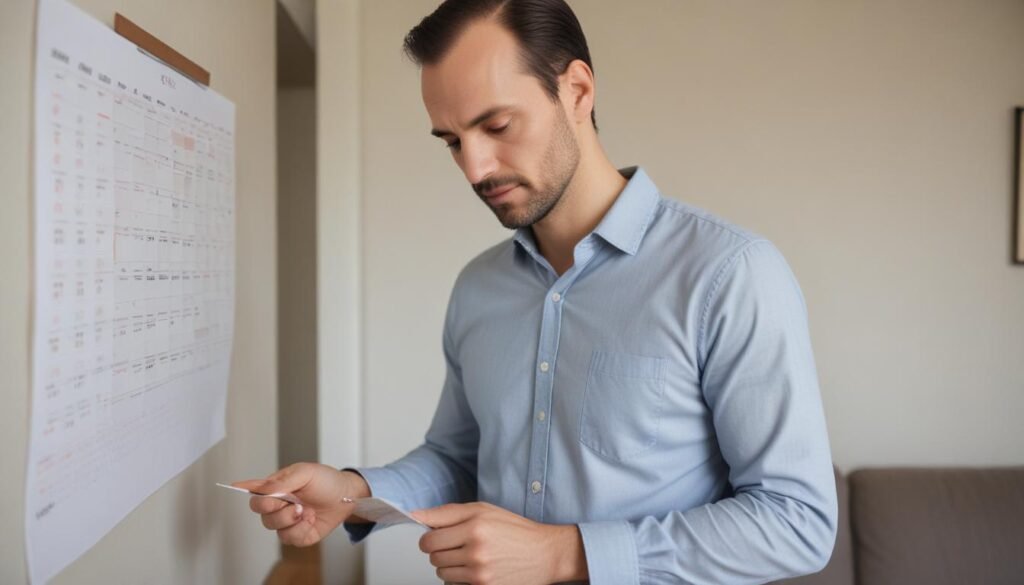
The Planning Phase: 8 Weeks Before
Medical Preparation (6-8 weeks before)
Health Assessment:
- Complete physical examination
- Blood work and basic tests
- Medication review with your doctor
- Disclosure of all health conditions
- Smoking cessation (if applicable)
Pre-existing Conditions to Discuss:
- Diabetes or blood sugar issues
- Heart conditions
- Blood clotting disorders
- Autoimmune diseases
- Previous surgeries
- Allergies and sensitivities
Current Medications:
- Blood thinners require special attention
- Some supplements must be stopped
- Birth control considerations
- Pain medication tolerance
- Anxiety medications for travel
Travel Logistics (4-6 weeks before)
Visa Requirements by Country:
- EU Citizens: No visa needed, valid passport required
- US/Canada: E-visa online, $20-50, processed in 24-48 hours
- UK Citizens: E-visa required post-Brexit
- Others: Check Turkish consulate requirements
Flight Booking Strategy:
- Book 6-8 weeks in advance for best prices
- Choose airlines with medical assistance policies
- Consider seat upgrades for recovery comfort
- Book flexible tickets when possible
Travel Insurance Essentials:
- Medical coverage abroad
- Trip cancellation protection
- Emergency evacuation coverage
- Pre-existing condition coverage
- Adventure sports exclusions check
Financial Planning (2-4 weeks before)
Hidden Costs to Budget For:
- Airport transfers: $50-100
- Meals not included: $30-50/day
- Medications: $100-200
- Compression garments: $50-150
- Tourist activities: $200-500
- Shopping and souvenirs: $100-300
- Tip for medical staff: $100-200
Payment Methods:
- Credit cards widely accepted
- Cash in USD, EUR, or Turkish Lira
- Bank transfers for large amounts
- Payment plans sometimes available
- Travel money cards for better rates
Total Budget Example (Rhinoplasty):
- Procedure: $3,500
- Flights: $800
- Accommodation (10 nights): $1,200
- Meals and activities: $600
- Miscellaneous: $400
- Total: $6,500 vs. $15,000+ at home

The Istanbul Experience: Your Week-by-Week Guide
Week 1: Arrival & Procedure
Days 1-2: Arrival and Consultation
Your first 48 hours:
- Airport pickup (usually included)
- Hotel check-in and orientation
- Initial consultation and final planning
- Pre-operative testing if required
- Final payment and paperwork
- Last-minute questions answered
What to expect:
- Jet lag management
- Cultural adjustment
- Final procedure confirmation
- Meeting your surgical team
- Facility tour
- Pre-op instructions
Days 3-4: Procedure Day and Immediate Recovery
Procedure day timeline:
- Early morning arrival at hospital
- Final consultation and marking
- Anesthesia consultation
- Surgery (1-4 hours depending on procedure)
- Recovery room monitoring
- Return to hotel with instructions
First 24-48 hours post-surgery:
- Pain management protocol
- Wound care instructions
- Activity restrictions
- Medication schedule
- Emergency contact information
- Follow-up appointment scheduling
Days 5-7: Initial Healing Phase
What’s happening:
- Swelling peaks around day 3-4
- Bruising becomes more apparent
- Energy levels gradually improve
- Appetite returns
- Sleep patterns normalize
Recommended activities:
- Gentle walks around hotel
- Light meals and hydration
- Reading or streaming entertainment
- Basic sightseeing from hotel room
- Regular communication with medical team
Week 2: Healing & Gentle Exploration
Physical progress:
- Swelling begins to subside
- Bruising changes color (good sign!)
- Energy levels improve significantly
- Mobility increases
- Appetite fully returns
Istanbul’s Recovery-Friendly Attractions:
Gentle Sightseeing Options:
- Blue Mosque: Short walk, sitting available
- Hagia Sophia: Audio tour, minimal walking
- Topkapi Palace: Extensive gardens, rest areas
- Grand Bazaar: Climate controlled, fascinating
- Bosphorus Cruise: Seated, relaxing, stunning views
Cultural Activities:
- Turkish bath (check with surgeon first)
- Traditional tea houses
- Carpet shopping (great bargaining practice)
- Food tours (soft foods initially)
- Photography walks
Managing Expectations:
- Some days better than others
- Emotional ups and downs normal
- Results not yet visible
- Patience required
- Communication with home important
Week 3+: Extended Stay Options
Advanced Recovery Activities:
- Museum visits (air-conditioned comfort)
- Cooking classes (seated, engaging)
- Art galleries and cultural centers
- Day trips to nearby areas
- Shopping for quality souvenirs
Follow-up Care:
- Suture removal
- Progress photography
- Final surgeon consultation
- Care instructions for home
- Emergency contact protocols
Preparing for Home:
- Medical documentation
- Prescription refills
- Travel clearance from surgeon
- Compression garment fitting
- Home care instructions
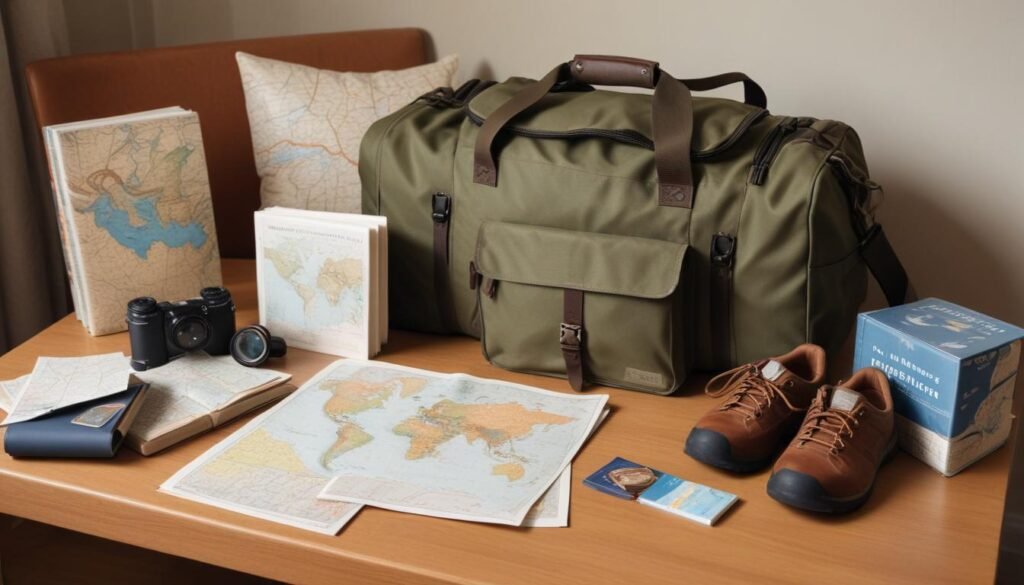
The Practical Survival Kit
Language Essentials: Key Turkish Phrases
Medical Situations:
- “Doktor çağırır mısınız?” (Can you call a doctor?)
- “Acı çekiyorum” (I’m in pain)
- “İlaç lazım” (I need medicine)
- “Hastaneye gitmem gerek” (I need to go to hospital)
- “Yardım edin” (Help me)
Daily Communication:
- “Merhaba” (Hello)
- “Teşekkürler” (Thank you)
- “Özür dilerim” (Excuse me/Sorry)
- “İngilizce biliyor musunuz?” (Do you speak English?)
- “Hesap, lütfen” (The bill, please)
Useful Apps:
- Google Translate (camera feature works wonders)
- Duolingo Turkish (basic phrases)
- TripLingo (travel-specific phrases)
Cultural Navigation: Do’s and Don’ts
DO:
- Dress modestly when visiting mosques
- Remove shoes when entering homes
- Accept offered tea (it’s cultural)
- Bargain politely in markets
- Show respect for call to prayer
- Tip service staff appropriately
DON’T:
- Point feet toward people
- Use left hand for eating
- Refuse hospitality rudely
- Photograph people without permission
- Display excessive affection publicly
- Ignore local customs
Emergency Protocols: What If Something Goes Wrong
Medical Emergencies:
- Contact your medical coordinator immediately
- Call emergency services: 112
- Go to nearest JCI-accredited hospital
- Contact your travel insurance
- Notify family/emergency contact
Non-Medical Emergencies:
- Lost passport: Contact consulate immediately
- Theft: Report to police, get crime report
- Flight changes: Contact airline and travel insurance
- Money problems: Contact bank, use embassy services
Key Contacts to Save:
- Medical coordinator: +90-XXX-XXX-XXXX
- Hospital emergency: +90-XXX-XXX-XXXX
- Your embassy: +90-XXX-XXX-XXXX
- Travel insurance: +XX-XXX-XXX-XXXX
- Hotel reception: +90-XXX-XXX-XXXX
Communication Tips
Staying Connected:
- Turkish SIM card for local calls
- WhatsApp for international messaging
- Skype/Zoom for video calls home
- Hospital WiFi usually excellent
- Hotel WiFi generally reliable
Medical Communication:
- Medical coordinator speaks your language
- Translator apps as backup
- Written instructions in English
- Emergency phrases learned
- Family updates regular
Recovery Aids: Pack Smart
Bring from Home:
- Comfortable loose clothing
- Front-opening shirts/tops
- Slip-on shoes (no bending)
- Personal medications
- Entertainment devices
- Comfort items
Buy in Turkey:
- Compression garments (fitted properly)
- Turkish towels (soft, absorbent)
- Local medications as prescribed
- Comfortable pillows
- Healing foods and teas

Going Home: The Transition
Travel Readiness: When It’s Safe to Fly
General Guidelines:
- Most procedures: 7-10 days minimum
- Facial surgery: 10-14 days preferred
- Body procedures: 14-21 days safer
- Multiple procedures: Surgeon’s clearance essential
Pre-Flight Clearance:
- Medical team approval required
- Fit-to-fly certificate obtained
- Airline notification if needed
- Seat selection considerations
- Medication for flight
Flying Comfort Tips:
- Aisle seat for easy movement
- Compression socks mandatory
- Hydration during flight
- Regular movement/stretching
- Pain medication timing
Continuing Care: Maintaining Turkish Team Connection
Remote Follow-up Options:
- Video consultations scheduled
- Photo progress updates
- WhatsApp communication
- Email support available
- Emergency consultation access
Documentation to Maintain:
- Complete medical records
- Surgeon contact information
- Procedure details and techniques
- Post-operative instructions
- Emergency contact protocols
Local Follow-up: Finding Compatible Care at Home
What to Look For:
- Plastic surgery experience
- Willingness to work with overseas procedures
- Understanding of techniques used
- Emergency availability
- Good communication skills
Information to Share:
- Complete Turkish medical records
- Surgical technique details
- Post-operative protocol
- Medication lists
- Emergency contact information
Managing Expectations: The Final Results Timeline
Month 1: Initial healing, 30% of final result visible Month 3: Significant improvement, 60% of final result Month 6: Major changes complete, 80% of final result Month 12: Final results achieved, 100% complete
Common Timeline Concerns:
- “I don’t see results yet” (normal at 2 weeks)
- “One side looks different” (normal during healing)
- “I have regrets” (common, usually temporary)
- “Results look too dramatic” (swelling effect)
- “Results look too subtle” (still healing)
Documentation: What Records to Keep
Essential Documents:
- Complete medical records
- Before/after photographs
- Surgical technique details
- Medication lists and instructions
- Follow-up care protocols
- Emergency contact information
- Insurance documentation
- Travel and accommodation receipts
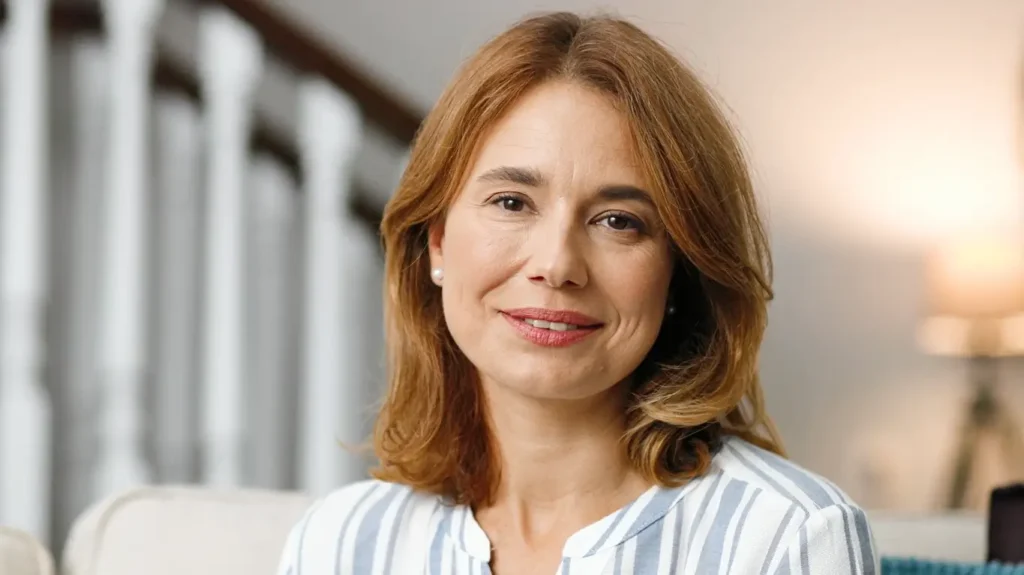
Real Stories: Patients Share Their Journeys
Success Story: Sarah’s Rhinoplasty Journey
Background: Sarah, 28, marketing executive from London Procedure: Rhinoplasty Total time away: 2 weeks Total cost: £4,500 (vs. £12,000 in UK)
Sarah’s Timeline:
- Week 1: “Honestly, I questioned my decision around day 3. Swelling was intense, and I looked like I’d been in a fight. The Turkish tea helped, and my coordinator checked on me daily.”
- Week 2: “Started exploring Istanbul gently. The Blue Mosque was incredible, and sitting in cafes watching people helped time pass. Swelling noticeably reducing.”
- Month 3: “Friends started commenting that I looked ‘refreshed.’ Perfect subtle result—exactly what I wanted.”
- Month 12: “Best decision ever. Natural result, significant savings, amazing experience.”
Key Lessons:
- Week 1 is tough—prepare mentally
- Having daily support makes a difference
- Results take time to appear
- Cultural experience enhanced recovery
Challenge Story: Mark’s Hair Transplant Experience
Background: Mark, 35, teacher from Toronto Procedure: FUE Hair Transplant Challenge: Slower healing than expected Total time away: 3 weeks (planned for 2)
What Went Wrong:
- Initial healing slower than average
- Required additional follow-up appointments
- Flight home delayed by medical advice
- Additional accommodation costs
How Problems Were Solved:
- Medical team extended care without extra charges
- Insurance covered extended accommodation
- Regular communication with Canadian doctor
- Extra week allowed for proper healing
Final Result:
- Excellent hair growth at 6 months
- No complications despite slower start
- Would choose Turkey again
- Recommends planning extra time buffer
Key Lessons:
- Not everyone heals at the same rate
- Good providers adapt to your needs
- Travel insurance is essential
- Flexibility in planning helps
Diverse Experience: Fatima’s Cultural Considerations
Background: Fatima, 42, from Dubai Procedure: Breast reduction Special needs: Islamic considerations, Arabic-speaking care
Cultural Accommodations Provided:
- Female-only nursing staff arranged
- Prayer times respected in scheduling
- Halal meal options available
- Arabic-speaking coordinator assigned
- Modest recovery clothing provided
Experience Highlights:
- “Felt completely comfortable and respected”
- “Islamic principles honored throughout”
- “Arabic support made family communication easier”
- “Results exceeded expectations”
Key Lessons:
- Cultural sensitivity is available
- Religious needs can be accommodated
- Language support enhances experience
- Diverse staff understand varied needs
Honest Timeline: Recovery Reality Check
Week 1: “Questioning life choices, lots of rest, minimal activity” Week 2: “Feeling more human, gentle exploration begins” Week 3: “Excitement returning, results starting to show” Month 1: “Back to normal activities, pleased with progress” Month 3: “Loving the changes, telling friends about experience” Month 6: “Results settled, very happy with decision” Year 1: “Can’t imagine not having done it”
Regret Prevention: Learning from Others’ Mistakes
Common Mistakes to Avoid:
- Choosing based on price alone
- Inadequate research on surgeon
- Unrealistic expectation setting
- Insufficient recovery time planning
- Poor communication with family
- Inadequate follow-up care planning
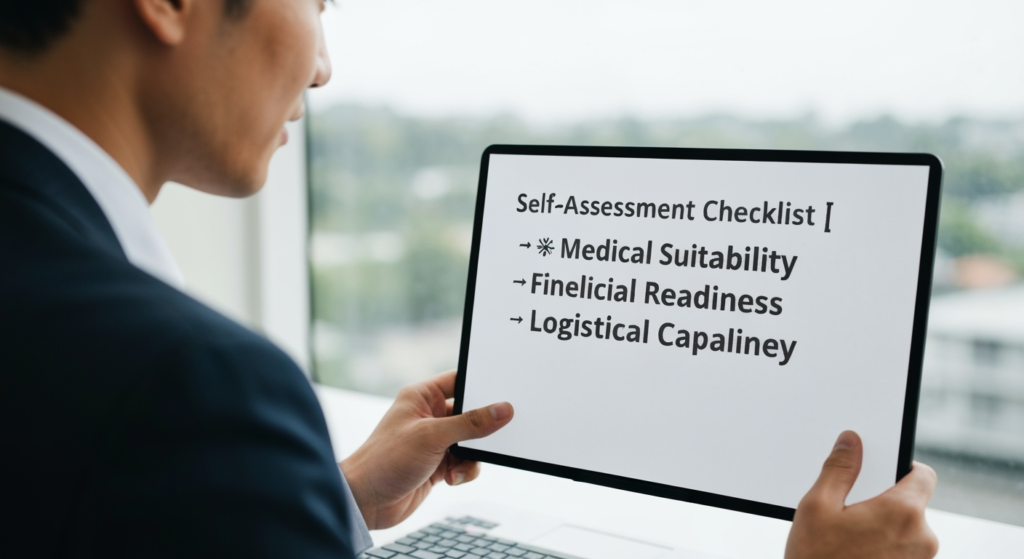
Your Decision Framework: Is Turkey Right for You?
Self-Assessment Checklist
Medical Suitability ✓
- [ ] I’m in good general health
- [ ] I have realistic expectations
- [ ] I understand the risks involved
- [ ] I can follow post-operative instructions
- [ ] I have no conflicting medical conditions
- [ ] I’m mentally prepared for surgery
Financial Readiness ✓
- [ ] I can afford the total cost (procedure + travel + unexpected expenses)
- [ ] I have emergency funds available
- [ ] I understand all costs involved
- [ ] I have appropriate insurance coverage
- [ ] I won’t go into debt for this procedure
Emotional Preparedness ✓
- [ ] I’m doing this for myself, not others
- [ ] I understand results take time
- [ ] I’m prepared for the recovery process
- [ ] I have realistic expectations
- [ ] I can handle being away from support system
- [ ] I’m mentally stable and positive
Logistical Capability ✓
- [ ] I can take 2-3 weeks away from work
- [ ] I can arrange care for dependents
- [ ] I’m comfortable traveling internationally
- [ ] I can handle potential language barriers
- [ ] I have passport and visa requirements met
- [ ] I can adapt to cultural differences
When to Choose Turkey: Ideal Candidate Profile
You’re an ideal candidate if:
- Significant cost savings motivate you (50%+ savings)
- You research thoroughly and choose quality providers
- You can dedicate proper time to recovery
- You’re excited about cultural experience
- You have realistic expectations
- You’re comfortable with international travel
- You value personalized care and attention
When to Stay Home: Alternative Considerations
Consider local treatment if:
- Cost isn’t a primary concern
- You have severe medical complications
- You can’t take extended time away
- You’re uncomfortable with international travel
- You need very specific local aftercare
- You have unrealistic expectations
- You’re doing this impulsively
Your Action Plan: Next Steps
If you’re ready to proceed:
- Research Phase (Week 1-2):
- List qualified providers
- Check surgeon credentials
- Read patient reviews
- Compare packages
- Consultation Phase (Week 3-4):
- Schedule virtual consultations
- Ask detailed questions
- Get treatment plans
- Compare recommendations
- Decision Phase (Week 5-6):
- Choose your provider
- Confirm all details
- Arrange travel and accommodation
- Complete medical clearance
- Preparation Phase (Week 7-8):
- Finalize travel arrangements
- Complete pre-operative requirements
- Prepare for extended absence
- Pack appropriately
If you need more time:
- Continue researching
- Save additional funds
- Improve health status
- Plan logistics better
- Seek additional opinions

Resources & Tools
Downloadable Checklists
Pre-Travel Medical Checklist
- [ ] Complete physical examination
- [ ] Blood work completed
- [ ] Medications reviewed
- [ ] Medical clearance obtained
- [ ] Health insurance confirmed
- [ ] Emergency contacts updated
- [ ] Medical history prepared
- [ ] Allergy list compiled
Packing List for Medical Tourists
Essential Items:
- [ ] Passport and visa documents
- [ ] Travel insurance documentation
- [ ] Medical records and prescriptions
- [ ] Comfortable, loose clothing
- [ ] Front-opening shirts/tops
- [ ] Slip-on shoes
- [ ] Personal comfort items
- [ ] Entertainment devices and chargers
Medical Supplies:
- [ ] Current medications (extra supply)
- [ ] Pain relief medications
- [ ] First aid basics
- [ ] Thermometer
- [ ] Hand sanitizer
- [ ] Tissues and wet wipes
Questions for Provider Consultation
About the Surgeon:
- [ ] What are your qualifications and certifications?
- [ ] How many of these procedures have you performed?
- [ ] Can I see before/after photos of your work?
- [ ] What’s your complication rate?
- [ ] Who will perform my anesthesia?
About the Procedure:
- [ ] What technique will you use?
- [ ] What are the risks specific to me?
- [ ] What results can I realistically expect?
- [ ] How long is the recovery period?
- [ ] When will I see final results?
About the Package:
- [ ] What exactly is included in the price?
- [ ] What additional costs might arise?
- [ ] What happens if complications occur?
- [ ] How will follow-up care work?
- [ ] What documentation will I receive?
Post-Procedure Care Tracker
Daily Monitoring:
- [ ] Pain level (1-10 scale)
- [ ] Swelling assessment
- [ ] Wound appearance
- [ ] Temperature check
- [ ] Medication taken
- [ ] Activity level
- [ ] Any concerns noted
Useful Apps & Websites
Translation & Communication:
- Google Translate (camera feature)
- WhatsApp (international messaging)
- Skype/Zoom (video calls)
- TripLingo (travel phrases)
Travel & Navigation:
- Google Maps (offline maps)
- Uber/BiTaksi (Turkish ride-sharing)
- TripAdvisor (reviews and recommendations)
- XE Currency (exchange rates)
Health & Recovery:
- MyFitnessPal (nutrition tracking)
- Headspace (meditation and relaxation)
- Sleep Cycle (sleep tracking)
- Pill Reminder (medication scheduling)
Cultural & Tourism:
- Istanbul Tourist Pass (attraction access)
- Muslim Pro (prayer times and direction)
- Turkish Airlines (flight management)
- Booking.com (accommodation)
Emergency Contacts Template
Medical Emergency:
- Hospital: +90-212-XXX-XXXX
- Medical Coordinator: +90-5XX-XXX-XXXX
- Surgeon Direct: +90-5XX-XXX-XXXX
- Travel Insurance: +XX-XXX-XXX-XXXX
General Emergency:
- Turkish Emergency Services: 112
- Tourist Police: +90-212-527-4503
- Your Embassy: +90-312-XXX-XXXX
- Hotel Reception: +90-212-XXX-XXXX
Personal Contacts:
- Emergency Contact 1: +XX-XXX-XXX-XXXX
- Emergency Contact 2: +XX-XXX-XXX-XXXX
- Family Doctor: +XX-XXX-XXX-XXXX
- Pharmacy: +XX-XXX-XXX-XXXX
Currency Converter & Cost Calculator
Basic Cost Calculator:
Procedure Cost: $______
Flights: $______
Accommodation (__ nights × $__ /night): $______
Meals (__ days × $__ /day): $______
Activities and Shopping: $______
Miscellaneous/Emergency Fund: $______
TOTAL ESTIMATED COST: $______
Home Country Cost: $______
TOTAL SAVINGS: $______
Currency Quick Reference:
- 1 USD = ~XX Turkish Lira (check current rates)
- 1 EUR = ~XX Turkish Lira
- 1 GBP = ~XX Turkish Lira
FAQ: Everything Else You’re Wondering
Safety Concerns
Q: Is medical tourism in Turkey actually safe? A: When choosing JCI-accredited hospitals and board-certified surgeons, Turkey’s safety standards match those of Western countries. The key is thorough research and choosing established providers.
Q: What if something goes wrong during surgery? A: JCI-accredited hospitals have emergency protocols, intensive care facilities, and partnerships with international medical assistance companies. Your travel insurance should also cover medical emergencies.
Q: How do I verify a surgeon’s credentials? A: Check board certifications, international training, hospital affiliations, and patient reviews. Legitimate surgeons will readily provide this information.
Q: Is the equipment in Turkish hospitals modern? A: JCI-accredited facilities use the same standard equipment found in top American and European hospitals. Many invest heavily in the latest technology to attract international patients.
Cost and Financial
Q: Are there hidden costs I should know about? A: Potential additional costs include extended accommodation if healing is slower, extra medications, activities, shopping, and tips. Budget an extra 20-30% for contingencies.
Q: Can I pay in installments? A: Some providers offer payment plans, but most require full payment before surgery. Check with individual providers about their policies.
Q: Does insurance cover medical tourism? A: Most insurance doesn’t cover elective procedures abroad, but travel insurance can cover complications. Some medical tourism insurance policies are available.
Q: What’s the tipping culture for medical staff? A: Tipping medical staff is appreciated but not mandatory. $100-200 total distributed among your care team is appropriate.
Logistics and Travel
Q: How long should I plan to stay? A: Minimum 10-14 days for most procedures, but 2-3 weeks is ideal for recovery and follow-up care. Complex procedures may require longer stays.
Q: Can I bring a companion? A: Absolutely recommended, especially for the first week. Many packages include accommodation for one companion.
Q: What if I need to extend my stay? A: Most hotels can extend bookings, though rates may change. Factor this possibility into your planning and budget.
Q: Is Istanbul safe for tourists? A: Istanbul is generally safe for tourists, with good security in medical tourism areas. Use standard travel precautions and stay in recommended areas.
Medical and Recovery
Q: How do I manage pain in a foreign country? A: Pain medications are prescribed by your surgeon, and most international medications are available. Your medical coordinator can help with any issues.
Q: What if I don’t speak Turkish? A: Medical tourism facilities typically have English-speaking staff. Translation apps and your medical coordinator bridge any communication gaps.
Q: Can I exercise during recovery? A: Light walking is encouraged, but specific exercise restrictions depend on your procedure. Your surgeon will provide detailed guidelines.
Q: What if I’m not happy with my results? A: Discuss revision policies before surgery. Reputable providers often include minor revisions in their packages, but major changes may incur additional costs. Remember that final results take 6-12 months to fully develop.
Q: How do I handle follow-up care when I return home? A: Your Turkish medical team will provide detailed care instructions and remain available for consultation. Find a local doctor willing to monitor your healing and coordinate with your Turkish team if needed.
Cultural and Religious
Q: Are there options for Muslim patients? A: Yes, many Turkish facilities cater specifically to Muslim patients with halal food, prayer facilities, female-only staff options, and scheduling around prayer times.
Q: What about dietary restrictions? A: Turkish cuisine naturally accommodates many dietary needs. Hospitals and hotels can provide vegetarian, vegan, gluten-free, kosher, and halal options.
Q: Is it appropriate to visit mosques during recovery? A: Yes, but avoid crowded times and ensure you can sit/rest as needed. Modest dress is required, and most mosques provide prayer rugs for sitting.
Q: How conservative should I dress? A: Istanbul is quite liberal, but modest dress is respectful, especially when visiting religious sites. Your medical team will advise on any specific post-surgery clothing needs.
Practical Concerns
Q: What’s the weather like year-round? A: Istanbul has a temperate climate. Summer (June-August) is warm and humid, winter (December-February) is cool and rainy. Spring and fall offer the most comfortable weather for recovery.
Q: Should I learn Turkish before I go? A: Not necessary for medical tourism, as staff speak English. Learning basic phrases shows respect and can enhance your cultural experience.
Q: Can I drive in Turkey? A: International driving licenses work, but driving isn’t recommended during recovery. Istanbul has excellent public transport and ride-sharing services.
Q: What about internet and phone service? A: WiFi is widely available, and Turkish SIM cards provide good coverage. Most medical facilities have excellent internet for video calls home.
Recovery and Results
Q: When can I return to work? A: Depends on your job and procedure. Desk work: 1-2 weeks. Physical work: 4-6 weeks. Work from home arrangements can help transition back.
Q: Can I wear makeup during recovery? A: Generally not for the first week, then gradually as healing permits. Your surgeon will provide specific guidelines based on your procedure.
Q: When can I exercise normally again? A: Light walking immediately, normal cardio at 2-4 weeks, full gym activities at 6-8 weeks. Always follow your surgeon’s specific timeline.
Q: Will people notice I’ve had work done? A: Initial swelling and bruising are obvious, but skilled surgery typically looks natural once healed. Most people notice you look “refreshed” rather than “different.”

Conclusion: Your Transformation Awaits
Making the decision to pursue medical tourism isn’t just about saving money—though the savings are undeniably spectacular. It’s about taking control of your self-confidence, exploring new cultures, and proving to yourself that you can navigate challenges and come out transformed.
Turkey offers something unique in the medical tourism world: the perfect blend of world-class healthcare, significant cost savings, and a recovery environment that’s actually enjoyable. Where else can you truthfully say your surgical recovery included viewing Byzantine mosaics and sipping Turkish tea while watching ships navigate between continents?
Remember the key principles:
- Research thoroughly: Your safety depends on choosing quality providers
- Plan comprehensively: Good planning prevents most problems
- Communicate clearly: Language barriers aren’t insurmountable
- Recover patiently: Results take time to develop
- Embrace the experience: You’re not just getting surgery—you’re having an adventure
The bottom line: If you’ve done your research, chosen accredited providers, planned properly, and set realistic expectations, medical tourism in Turkey can offer you excellent results at a fraction of the cost you’d pay at home, all while experiencing one of the world’s most fascinating cities.
Your transformation journey doesn’t start when you wake up from surgery—it starts the moment you decide you’re worth investing in. Turkey just happens to be an exceptionally smart place to make that investment.
Ready to take the next step? Use the checklists, ask the questions, do the research, and trust yourself to make the right decision. Your best self is waiting, and Istanbul is ready to welcome you.
Safe travels, and here’s to your successful transformation journey.
Additional Resources
Official Tourism Information:
- Turkish Ministry of Health: sggm.saglik.gov.tr
- Turkish Medical Tourism: www.saglikturizmi.gov.tr
- Visit Istanbul: www.istanbul.com
International Accreditation:
- Joint Commission International: www.jointcommissioninternational.org
- International Society of Aesthetic Plastic Surgery: www.isaps.org
Travel Resources:
- Turkish Airlines: www.turkishairlines.com
- Turkey e-Visa: www.evisa.gov.tr
- Currency Exchange: www.xe.com
This guide is for informational purposes only and does not constitute medical advice. Always consult with qualified medical professionals before making treatment decisions.
